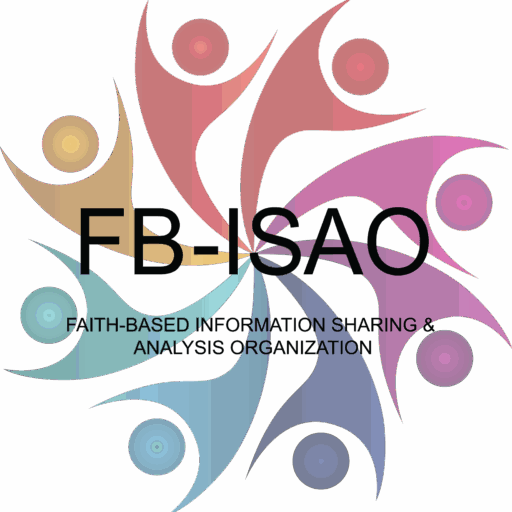By Robert Goldberg, Principal, Goldberg & Associates LLC, and FB-ISAO Member
The current threat environment facing faith-based communities is at an inflection point. The Department of Homeland Security presently warns that acts of extremist-motivated violence are likely to continue against faith-based institutions and racial and religious minority groups. The public record underscores the frequency, complexity, and magnitude of these concerns. This year to date, it has been reported that BB guns, stun guns, handguns, ghost guns (3-D printed and untraceable), shot guns, sub-machine guns, fully automatic machine guns, arson, and explosives have been used or threatened against faith, ethnic, and minority communities. It is within this heightened environment that at-risk faith-based and communal institutions should take stock in the federal resources and opportunities available to improve their physical security and preparedness against these threats.
One of the most notable and impactful federal resources is the Department of Homeland Security (DHS) / Federal Emergency Management Agency Nonprofit Security Grant Program (NSGP). NSGP provides funding to support target hardening and other physical security enhancements and activities to nonprofit organizations that are determined to be at high risk of terrorist or terroristic attack. The intent of the program is to integrate nonprofit preparedness activities with broader state and local preparedness efforts. It is also designed to promote coordination and collaboration in emergency preparedness activities among public and private community representatives, as well as state and local government agencies.

The program began in FY 2005 with a $25 million appropriation. Since then, Congress has appropriated a total of $850 million, which has supported approximately 8,500 grants to at-risk faith-based and nonprofit organizations across the country. This year, Congress is considering appropriating $360 million for the next (FY 2023) NSGP funding opportunity. Congress is working towards a December 16 deadline to complete the pending appropriations bills, and if it meets this deadline, the next NSGP application process could open as soon as February 16th. FB-ISAO will keep track of the appropriations and keep our members up to speed.
Prior to the NSGP program, there were no recognized, dedicated, or centralized federal resources to support the physical security, planning, and training of at-risk faith-based and nonprofit communal organizations or efforts by the federal government to bring nonprofit organizations closer into broader state and local preparedness efforts. After 17 years, NSGP has grown into one of the largest preparedness grant programs administered by FEMA on behalf of the Department of Homeland Security.
With this growth, Congress is considering new NSGP authorizing legislation to ensure that the program’s administration, oversight, and infrastructure keep pace with the program’s 10-fold expansion. Bipartisan legislation, HR 6825, the “Nonprofit Security Grant Program Improvement Act of 2022,” has moved swiftly through the Homeland Security authorizing committees and is likely to be considered for expedited passage during the upcoming “lame duck” session. If enacted, the bill would improve outreach, engagement, education, and technical assistance in support of the NSGP funding opportunity. The timing for passage of the bill could match up nicely with the completion of the FY 2023 appropriations.
Alternatively, Congress could delay the pending spending decisions until the next (118th) Congress is sworn in on January 3rd. Such delays are not uncommon. While the Federal fiscal year commences on October 1, Congress rarely completes the spending bills on time and this year is no exception. The result of these delays inevitably leads to an extremely condensed NSGP application window. This past year, for example, the application period for most nonprofits applying for NSGP grants was limited to less than 10 days. This is not a realistic timeframe for a competitive grant that is scored in significant part on the quality, efficiency, and efficacy of the grant proposals submitted. For these reasons, it is strongly advised that nonprofits planning to apply for the upcoming NSGP funding opportunity to draft their applications and satisfy other requirements and conditions of the grant ahead of time.
Advanced planning and preparation are critical factors in putting together the components of the NSGP grant application package, which consists of:
- An application form called an Investment Justification (IJ), which is PDF-based
- A Vulnerability Assessment upon which the investments requested in the IJ are based and substantiated
- The organization’s Mission Statement and any mission implementation policies or practices that may elevate the organization’s risk
- Any documentation substantiating the applicant’s elevated risk, such as past threat incidents directed at it or at a similarly situated organization
- General cost estimates that substantiate and validate the project cost and funding level requested.
The Federal Emergency Management Agency and the Cybersecurity and Infrastructure Agency (CISA) provide several resources that can help organizations get a jump start on their preparations for the next NSGP grant opportunity. This includes FEMA’s instructions, guidance and tools related to the most recently completed NSGP application cycle (FY 2022) and CISA’s library of charitable sector security and preparedness resources. For the most part, these materials will be applicable to the FY 2023 grant process and can be accessed at:
To further help organizations navigate the NSGP process in advance of the FY 2023 funding opportunity, the Faith-Based Information Sharing and Analysis Organization (FB-ISAO) invites you to the following two sessions we will be hosting in November:
- Join a Lunch and Learn, on 08 November at 11:30am ET, to meet Robert Goldberg. With more than 25 years’ experience, Rob Goldberg is a high-impact lobbyist and trusted advocate and ally. He has amassed significant results within the nonprofit sector, especially for clients requiring step-by-step guidance applying for Federal security grants and other Federal funding opportunities. Rob possesses a wealth of knowledge on everything NSGP. Register here.
- Join a moderated panel discussion on the NSGP with a panel of Subject Matter Experts on 29 November 2022 at 12:30pm ET. Register here. The session will be hosted and moderated by Ed Heyman, FB-ISAO’s Co-Chair of the Operational Resilience Group (ORG.)
The panel is made up of:
Mark Silveira. Mr. Silveira currently serves as Senior Advisor for the Grant Programs Directorate’s Office of Grant Administration.
Robert Goldberg. Rob, principal of Rob Goldberg & Associates, was instrumental in the establishment and continuation of the Nonprofit Security Grant Program over the past two decades.
Amy Keller. Amy is the Director of Security Initiatives External Affairs Jewish Federation in the Heart of New Jersey where she develops security initiatives for vulnerable communities, organizations, and assets.
The NSGP grant opportunity may not be for everybody. However, whether intending to apply for the NSGP grant opportunity or not, it is advisable that all faith and charitable sector organizations familiarize themselves with safety and security best practices, and we hope all of you will take advantage of the above information and join us at the upcoming programs.


